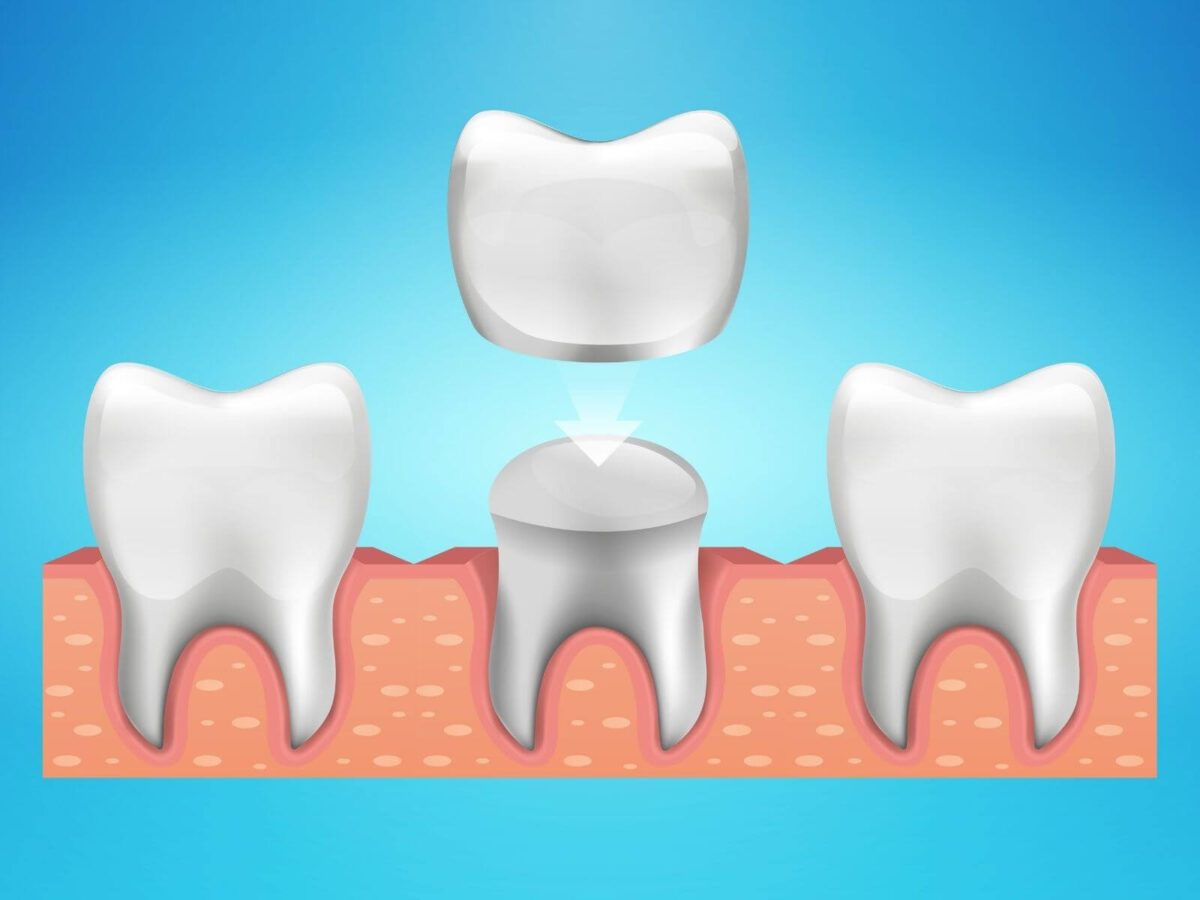Blog
Dental hygiene tips for healthy teeth & gums

Dos And Don’ts After Getting A Dental Crown: A Complete Guide
Do you intend to get dental crowns done, but what comes next once the procedure is made? Dental crowns are vital to restoring the function and aesthetics of teeth, but caring for them is crucial. If you have a dental crown, you must adhere to certain basic measures that are approved and those that aren’t approved after the process.
What are Dental Crowns?
They are one of the most popular restorative treatments to restore broken or decayed teeth and to improve the shape, color, and size of the teeth. A dental crown refers to a tooth-shaped cap cemented on a damaged tooth’s remaining structure to help restore its shape, size, strength, and appearance.
Ceramic, porcelain, resin, or metal alloys can be used to fabricate crowns. The type of material that is used in the manufacturing of a dental prosthesis depends on the location of the mouth, cost, and preference.
Before a dental crown is placed, the dentist will anesthetize the surrounding area of the tooth that needs the crown and then further reduce its size to accommodate the crown. An impression of your reshaped tooth will then be made, which will be used to have your crown made by a professional in a lab from very good material.
After that, your dentist will cement the crown using a cement that can bond to the tooth structure well, permanently onto your prepared tooth. With good oral hygiene practices, including proper brushing and flossing and visiting your dentist for checkups every six months after getting dental, porcelain crowns placed on the bite, you can keep them looking like new for years!
Benefits of Getting Dental Crowns
The benefits of getting dental crowns include the following:
- They can be used to reshape a tooth, rebuild a worn-down tooth, or even fill a cavity.
- It can eliminate pain or discomfort in teeth or gums.
- A bridge can be strengthened using dental crowns
- They can last for a long time
- Teeth crowns improve chewing
Dos: What to Do With Your Dental Crown
1. Maintain Good Oral Hygiene
Dental crowns, like your biological teeth, should be brushed and flossed daily to avoid plaque and germ buildup. When brushing your crown, it is advised to use a soft-bristled toothbrush, while using a nonabrasive toothpaste should suffice as well.
Floss Carefully: When flossing around your crown, remove the floss; do not pull it up and down. This increases the chances of the floss becoming trapped with the crown, forcing its removal.
2. Visit Your Dentist Regularly
Through checkups, you allow your dentist to assess the general health of your crown and other teeth. Our doctors can look for any abrasion or scratch and ensure that your crown stays on your head tight.
However, regular cleaning is a job that professional cleaners should do to maintain the health of the crown. Your dentist or dental hygienist does professional cleaning and can eliminate the hard deposits of plaque and tartar in places not easily accessible by a toothbrush.
3. Be Mindful of What You Eat
Even though your dental crown is so strong, do not bite on hard things like ice cubes, nuts, or suck candies because this can make the crown breakpoint. Don’t eat sticky foods like caramel because they pull on the crown.
4. Wear a Nightguard If You Grind Your Teeth
If you are a teeth grinder or a teeth-clenching person, then you should know that the use of a mouth protector or night guard is very suitable since it reduces the amount of pressure exerted over the crown during sleep.
Don’ts: What Not to Do with Your Dental Crown
1. Don’t Ignore Sensitivity
Once the crown is set, you will likely have some heightened sensibility. However, if this should increase, you should consult your dentist. Long-term sensitivity would suggest a problem with the crown or the tooth underneath it.
2. Don’t Use Your Teeth as Tools
Applying force to packaging, nails, and tags with your teeth will harm the dental crown resting in your mouth. These tasks should, therefore, always be done with the right tools for the crown and natural teeth’ sake.
3. Cavity is a Common Problem
To maintain the longevity of your crown, you must go for a check-up now and then. Missed appointments are always disastrous as new problems, which were not well-developed at the time of the appointment, are problematic; hence, their potential resolution would result in a much bigger crisis.
Care Instructions After Having a Dental Crown
To improve the life of dental crowns and promote dental health, there are aftercare measures that clients need to take. Here are some tips to keep in mind:
- Practice good oral hygiene: swish around your mouth with fluoride toothpaste at least two times daily and floss once daily. Swish an over-the-counter mouthwash once a day to decrease the growth of bacteria.
- Avoid hard or sticky foods: It may be said that chewing on hard candies, ice, popcorn kernels, or similar foods may harm the crown or even knock it off the teeth.
- Don’t use your teeth as tools: Do not bring your teeth to bear to open bottles or tear plastic covers, as this may harm the crown.
- Wear a mouthguard while playing sports: For those individuals engaged in contact sports such as football, basketball, or boxing, wearing a clean, personalized mouthguard will help to reduce the impact of sports activities on both your natural teeth and those replaced through dental crowning.
- Visit your dentist regularly: Scheduling appropriate dental check-ups is useful to evaluate any problems at an early stage lest they reach a catastrophic point where the crown also has to be replaced.
Through the post-treatment guidelines on dental crowns highlighted above, we can extend their lifespan without replacing them later.
Final Thoughts
crowns are a great option for several dental issues. These are advantageous to people with defective or eroded teeth because they have form and function advantages.
To guarantee that a dental crown lasts for many years, it is crucial to adhere to the dos and don’ts after receiving one.
Avoid smoking, chewing on hard things, grinding your teeth, and eating sticky meals. However, as advised by your dentist at Elgin Family Dental, you should brush and floss regularly.


